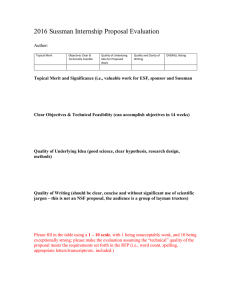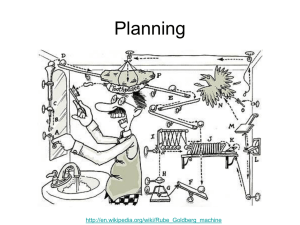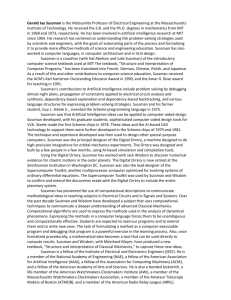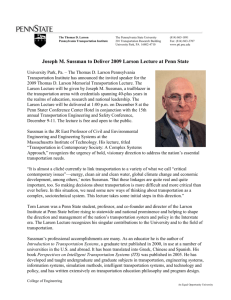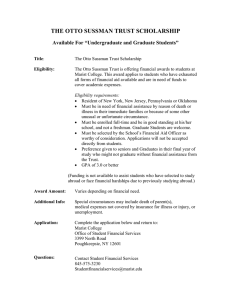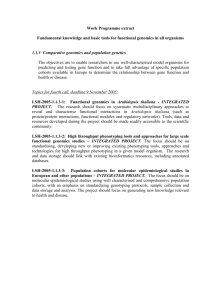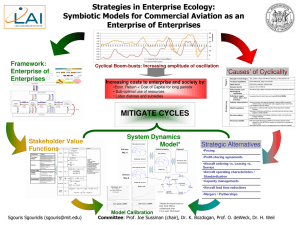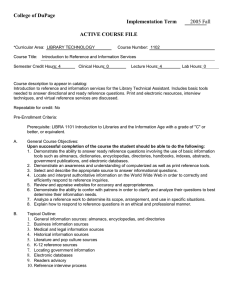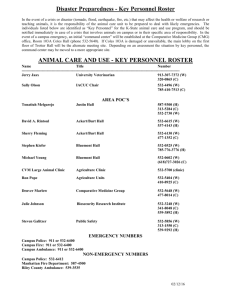Functional Genomics
advertisement
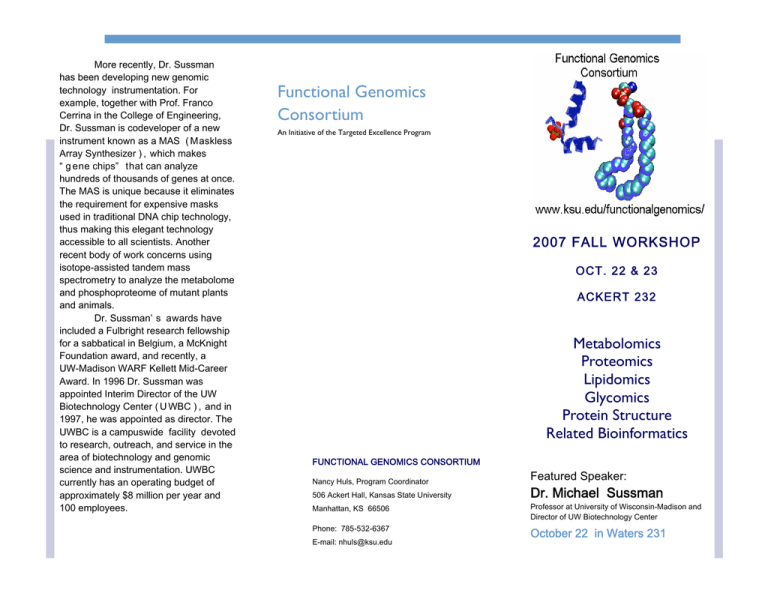
More recently, Dr. Sussman has been developing new genomic technology instrumentation. For example, together with Prof. Franco Cerrina in the College of Engineering, Dr. Sussman is codeveloper of a new instrument known as a MAS ( Maskless Array Synthesizer ) , which makes “ g ene chips” that can analyze hundreds of thousands of genes at once. The MAS is unique because it eliminates the requirement for expensive masks used in traditional DNA chip technology, thus making this elegant technology accessible to all scientists. Another recent body of work concerns using isotope-assisted tandem mass spectrometry to analyze the metabolome and phosphoproteome of mutant plants and animals. Dr. Sussman’ s awards have included a Fulbright research fellowship for a sabbatical in Belgium, a McKnight Foundation award, and recently, a UW-Madison WARF Kellett Mid-Career Award. In 1996 Dr. Sussman was appointed Interim Director of the UW Biotechnology Center ( U WBC ) , and in 1997, he was appointed as director. The UWBC is a campuswide facility devoted to research, outreach, and service in the area of biotechnology and genomic science and instrumentation. UWBC currently has an operating budget of approximately $8 million per year and 100 employees. Functional Genomics Consortium An Initiative of the Targeted Excellence Program 2007 FALL WORKSHOP OCT. 22 & 23 ACKERT 232 Metabolomics Proteomics Lipidomics Glycomics Protein Structure Related Bioinformatics FUNCTIONAL GENOMICS CONSORTIUM Nancy Huls, Program Coordinator Featured Speaker: 506 Ackert Hall, Kansas State University Dr. Michael Sussman Manhattan, KS 66506 Professor at University of Wisconsin-Madison and Director of UW Biotechnology Center Phone: 785-532-6367 October 22 in Waters 231 E-mail: nhuls@ksu.edu FUNCTIONAL GENOMICS CONSORTIUM FALL WORKSHOP Monday, October 22 8:15 Registration Ackert 232 8:30 - 9:45 Dr. Ruth Welti Utilizing the Kansas Lipidomics Research Center Ackert 232 9:45 - 10:05 Coffee Ackert 235 10:05 - 10:25 Dr. Om Prakash Utilizing the Biomolecular NMR Facility 10:25 - 11:00 Dr. Mark O ’ Neil-Johnson Bringing Back Nature to a Drug Discovery Program 11:00 - 11:20 Dr. Timothy L. Peck High Throughput NMR Ackert 232 Lunch on your own 1:00 - 2:15 Dr. John Tomich & Dr. Yasuaki Hiromasa Advances in Proteomics at KSU Ackert 232 2:15 - 3:40 Open house at Biomolecular NMR Facility Chalmers 37 3:30 - 4:00 Coffee Chalmers 036 4:00 - 5:00 Dr. Michael Sussman Next Generation Tools for a Systems Biology Approach to Gene Function in Arabidopsis Thaliana Waters 231 5:15 - 6:15 Dr. John Tomich Discussion of Proteomics Data Handling and Databases Ackert 324A Tuesday, October 23 9:00 - 11:00 Tentative Second session with Dr. Michael Sussman Ackert 324A 4:00 p.m. Oct. 22: “ Next generation tools for a systems biology approach to gene function in Arabidopsis thaliana ” Recent advances in DNA sequencing and DNA chips are providing a “ democratization” of genomic technologies, in that they are placing in the hands of individual laboratories and scientists sophisticated genomic tools that used to only be available through large core facilities. In this talk, Dr. Sussman will describe some of these new technologies as well as others that are on the cusp of success. For example, recent gene synthesis from oligonucleotides has become more commonplace and is available through the private sector or in individual laboratories via purchase of synthetic oligonucleotides. However, these procedures are still costly and time consuming, with a typical gene costing at least 50 cents per base pair, and three weeks delivery time. By eluting oligonucleotides from de novo-synthesized, high-density oligonucleotide arrays, there are opportunities for reducing the price of gene synthesis by one or two orders of magnitude. If these succeed, the need to perform time consuming, enzyme-based, cut and paste methods for DNA cloning could be greatly reduced or eliminated. Other advance in mass spectrometric and NMR-based analyses of the metabolome will also be described in the context of a systems biology approach for linking the metabolome and transcriptome in a comprehensive and experimentally determined manner. Identifying the 30,000 or so small molecules comprising the plant metabolome may be as important a goal for future progress as sequencing DNA was for genomics. Michael R. Sussman, Ph.D. is a Professor in the Department of Biochemistry, and Director of U.W. Biotechnology Center, University of Wisconsin, WI. At the University of Wisconsin over the past two decades, Dr. Sussman has become recognized as a leading expert on signal transduction and genomics in plants. His research interests have focused on using the model higher plant, Arabidopsis thaliana, for understanding the role of plasma membrane proteins in signal transduction and solute transport. His laboratory was the first to report on unique protein kinases found only in plants and protists and on the plasma membrane proton pump, which provides the driving force for the uptake of all nutrients. To help understand the in situ role played by these important proteins, his laboratory has pioneered the development of genome-wide reverse genetics techniques. Specifically, they have utilized an insertional mutagenesis scheme to isolate “ knockout ” plants, starting with the sequence for any one of the ca. 30,000 genes in Arabidopsis. For example, earlier results from Dr. Sussman ’ s lab demonstrate that the plant homologue for a brain potassium channel is performing a nutritional role in plants, i.e., is responsible for the uptake of potassium from soil.
